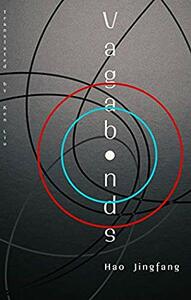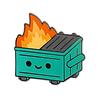Take a photo of a barcode or cover
(DNF) Too much like LeGuin's The Dispossessed, which I also did not enjoy. Sort of a fictional comparative ethnography, cerebral, deliberate, contemplative.
adventurous
reflective
slow-paced
Plot or Character Driven:
A mix
Strong character development:
Yes
Loveable characters:
Complicated
Plot: 3.75★
Prose: 4★
Pace: 3.25★
Concept/Execution: 4.5★/4★
Characters: 3.5★
Worldbuilding: 4★
Ending: 3.5★
Prose: 4★
Pace: 3.25★
Concept/Execution: 4.5★/4★
Characters: 3.5★
Worldbuilding: 4★
Ending: 3.5★
Moderate: Death, Violence, Xenophobia, Grief, Death of parent, Gaslighting, War, Injury/Injury detail
Minor: Bullying, Cancer, Drug use, Mental illness, Misogyny, Sexism, Suicide, Terminal illness, Blood, Medical content, Murder, Toxic friendship, Alcohol
Three groups of travelers are bound for an independent Mars on the only ship allowed to make the journey between the estranged planets. The returning delegates of Mars are excited to get home, the Terran delegates are anxious about the forthcoming negotiations, and the returning children of Mars, sent to study on Earth 5 years previously, are ready to get back home but uncertain of their place there.
It's 30 years after the war for Martian independence ended, but relations between the planets are still delicate. Earth views Mars as an authoritarian society without freedom and Mars views Earth as devoid of morality and ideals. Stuck between the vastly different lifestyles and societies of the two are the group of students sent to learn about life on Earth but expected to conform back into the vastly different Martian society on their return.
Hao Jingfang's Vagabonds is a meditation on humanity and the meaning of freedom. Mars represents the collective ideals of societies, placing familial bonds and the betterment of the whole over individual freedom. Earth represents the individual, the pursuit of freedom and profit over the collective good. The students shuttled between these two worlds are thrown into internal conflict. Seeing the flaws of both societies, but unable to live in either, they must decide if struggling to fix the problems they have found is a worthwhile or achievable goal. Are revolutions ever truly successful, is it possible to build something without flaw?
This contemplation of societies is understandable and raises good questions, but Vagabonds struggles with finding direction through it. Reading more like a selection from de Montaigne's Essais than a novel, the book features circular arguments, abrupt jumps in time, constantly adds new point of view characters and completely drops others. Structurally, it's a bit of a mess. While Hao Jinfang's lyrical writing often makes individual sections of this book unforgettable, the overall effect is a lengthy, overly descriptive slog. Entire pages are spent, paragraph after paragraph, on describing the same thing using slightly different words for sentence after sentence. Sometimes this is done to good effect, often when a character is using their surrounding to parse their conflicts. However, when combined with the time jumps and point of view changes, it leads to an overall muddle reading experience.
Hao Jingfang is clearly a talented writer. Vagabonds will appeal to people who would rather ponder than go on a journey. There are some truly wonderfully written sections of this book and I do look forward to reading future works from this author. Having said that, I will not be picking this one back up for a revisit.
Thank you the Gallery / Saga Press and Netgalley for a copy of this book to review.
It's 30 years after the war for Martian independence ended, but relations between the planets are still delicate. Earth views Mars as an authoritarian society without freedom and Mars views Earth as devoid of morality and ideals. Stuck between the vastly different lifestyles and societies of the two are the group of students sent to learn about life on Earth but expected to conform back into the vastly different Martian society on their return.
Hao Jingfang's Vagabonds is a meditation on humanity and the meaning of freedom. Mars represents the collective ideals of societies, placing familial bonds and the betterment of the whole over individual freedom. Earth represents the individual, the pursuit of freedom and profit over the collective good. The students shuttled between these two worlds are thrown into internal conflict. Seeing the flaws of both societies, but unable to live in either, they must decide if struggling to fix the problems they have found is a worthwhile or achievable goal. Are revolutions ever truly successful, is it possible to build something without flaw?
This contemplation of societies is understandable and raises good questions, but Vagabonds struggles with finding direction through it. Reading more like a selection from de Montaigne's Essais than a novel, the book features circular arguments, abrupt jumps in time, constantly adds new point of view characters and completely drops others. Structurally, it's a bit of a mess. While Hao Jinfang's lyrical writing often makes individual sections of this book unforgettable, the overall effect is a lengthy, overly descriptive slog. Entire pages are spent, paragraph after paragraph, on describing the same thing using slightly different words for sentence after sentence. Sometimes this is done to good effect, often when a character is using their surrounding to parse their conflicts. However, when combined with the time jumps and point of view changes, it leads to an overall muddle reading experience.
Hao Jingfang is clearly a talented writer. Vagabonds will appeal to people who would rather ponder than go on a journey. There are some truly wonderfully written sections of this book and I do look forward to reading future works from this author. Having said that, I will not be picking this one back up for a revisit.
Thank you the Gallery / Saga Press and Netgalley for a copy of this book to review.
emotional
reflective
slow-paced
Plot or Character Driven:
A mix
Strong character development:
Yes
Loveable characters:
Yes
Diverse cast of characters:
Yes
No leo mucha ciencia ficción pero lo encontré demasiado largo y aburrido.
informative
reflective
slow-paced
Plot or Character Driven:
Character
Strong character development:
Yes
Loveable characters:
Complicated
Diverse cast of characters:
Complicated
Flaws of characters a main focus:
Yes
Excellent read that in my opinion falls more under literary fiction than science fiction, reminds me a bit of one of Kim Stanley Robinson's books. I have only two criticisms, one it was very lengthy and I honestly believed the story could still have been done well if only they cut out a third of the book. It was divided into 3 parts and was lengthy in the introspective parts. If it was cut down to two parts it would have been easier to follow and more enjoyable. Two, there wasn't much in the way of diversity which I found extremely disappointing since Mars was (at least at the beginning) being held up as a genuine utopia. There was no mention of race beyond vague skin tone descriptions of characters, no mention of non binary gender identities, LGBTIA mentions, no mention of gender inequality that was clearly present and most if not all the women in the story were in artistic careers not in the sciences. Maybe I am being nitpicky but in my vision of a futuristic utopia I would want to see women in leaderships positions, in the 'hard' sciences, in the military, etc alongside men.




